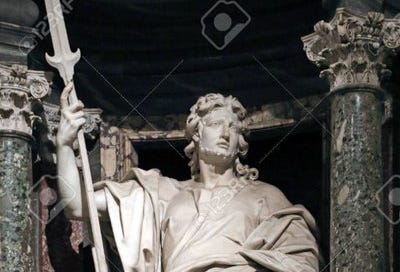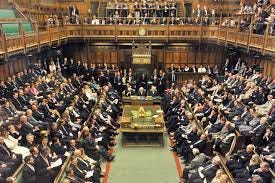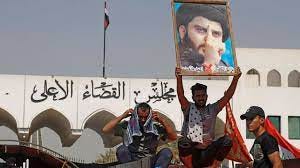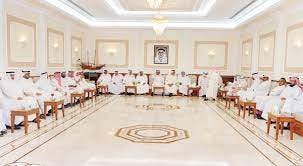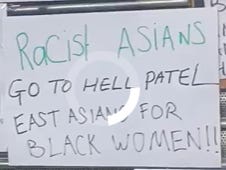This is an excerpt from my upcoming book, Convert or Die.
If diversity were a strength, Lebanon would have colonised France, the Democratic Republic of Congo would be a superpower, and China would be in the doldrums. If homogeneity were the only source of strength, the North Koreans would rule the world. Diversity is not inherently good, as can be seen from the chaos often experienced by diverse societies. Nor is it inherently bad. The Islamic Caliphate combined the intellect of the Persians, the learning of the Christians and Greeks, the skills of the Syriacs and the governance of the Arabs to great effect.
Diversity is merely a fact of life. It is ordained by God, and so we accept it. Accepting it does not stop us from analysing it. The net effect of diversity – whether it leads to chaos or to stability and advancement – very much depends on the political system under which it exists.
In this piece, I claim that diversity leads to paralysis and chaos resulting from intergroup competition, unless minority authoritarian rule succeeds in imposing order, at least for a time. Communal conflict is the norm between diverse groups, and only a strong, cohesive ruling elite can contain it, usually at the expense of individual rights. Such an elite preserves the collective right of all groups to exist, but has no regard for Western ideas about individual rights. The West is not immune to this aspect of the human condition.
The Catholic solution is to acknowledge reality and prepare accordingly.
What is diversity?
Diversity in the sense used by the sloganeering “diversity is our strength” crowd refers to there being people from different places or of different races who share the same exact woke religious dogma. This crowd believes in castes of holy victims – non-whites, queers, women, etc... They believe in their version of Original Sin – slavery, racism, and colonialism. They believe in a soul that transcends physical appearance – a sexualised, corrupted soul that they call “gender identity”. They replace eschatology with climate change, giving themselves an Armageddon – the climate crisis – and a paradise – Net Zero. And they excommunicate heretics – you get cancelled for blaspheming against the woke orthodoxy, not for actual sins. The woke embrace major oil, arms and banking corporations that profess woke dogma. Yet they cancel, with cruel intolerance, any small-time conservative dissidents they come across. In this version of diversity, there is only the woke and the far right. This faux diversity tolerates no disagreements about values, no conflicts among separate groups, and no nuance. This form of faux diversity is precisely skin deep – it stops at skin colour.
Actual diversity involves people living within the same polity while having fundamentally different values and interests. It involves people who define themselves as different from one another and who are in conflict with one another. In Lebanon, in the Congo, in pre-partition Cyprus, in Nigeria, in the former Yugoslavia, in Russia, in Saudi Arabia, in Libya, in the Ukraine, in Iraq, in Malaysia, there is true diversity.
In these countries, there are competing identity groups. Religion, tribe, ethnicity, historical narratives, origins, values, and interests divide these identity groups. They coexist as separate but neighbouring communities in the same geography and often under the same nominal political or state authority. In such communities, peace and the functioning of the state are not taken for granted. Chaos and conflict are constantly around the corner. Loyalty is reserved for one’s own. That is perfectly natural, as men prefer those who share their identity, beliefs, history, and experience.
No sane man prefers strangers to his own people.
Diversity in action
In a diverse society, competing groups disagree on first principles, such as what is good for the community, who are our friends and our enemies, and what is the aim of our lives. The rival groups’ value systems are different, so their definition of what is good is different. Their identities and loyalties are different, so their idea of what is common is different. It is impossible for there to be a shared definition of the common good, as they disagree about the answers to the questions “what is good?” and “what is common?”.
Under these conditions, competing ethnic and religious groups organise for collective action along group lines, delineated by values and identity – mixed groups simply cannot operate. The competition between diverse groups for the control of scarce resources of a limited geography will naturally be vicious. Inevitably, the diverse groups are in conflict, violent or non-violent, as what is good for one group is usually bad for another. Indeed, any advancement of one group is immediately seen as a threat by the other groups.
Therefore, the first casualty of a diverse society is trust. In a diverse society, it is assumed implicitly, and sometimes stated explicitly, that your neighbours, who do not share your identity and interests, are going to look after their own kin, therefore harming your interests. And this is a perfectly reasonable assumption. The Lebanese express it as: “you grandfather’s enemy is your enemy” (عدوّ جدّك ما بيودّك). Your neighbours in a diverse society will tend not to treat you as an equal or in good faith. They will attempt to undermine you if you grow strong, and take advantage of you if you become weak. They will pass you over for promotion, and reserve profitable endeavours for their kin. There is no reason to be honest or fair with those who view your people as enemies and rivals. Trust goes out the window.
The second casualty of a diverse society is cooperation. Since trust is a prerequisite for peaceful collaboration, cooperation across groups becomes almost impossible. The natural impulse to cooperate, or to set rules for competition, that prevails in a high-trust society, does not pay off in a diverse society. True diversity leads competing communities to conclude, usually correctly, that the wellbeing of their neighbours will be at their expense, and that it is best to organise along group identity lines rather than attempt to cooperate across group identities. As such, it would be wiser to give preference to your far away religious or ethnic kin, rather than to your neighbours who do not share your group identity. As this way of thinking becomes embedded in the psyches of the competing groups, their impulse to collaborate is dulled, and is replaced by a crabs-in-a-bucket mindset. That is, whenever one sees one’s neighbour improving himself, one attempts to tear him down. As that impulse becomes more ingrained, the prospects for society to develop are reduced, and building a meritocracy becomes impossible.
The cooperative, constructive, and institutionalised civic life that one takes for granted in the West is only possible in a high trust society. However, a high trust society requires a level of homogeneity within it. Outside the West, civic life is organised along ethnic or religious lines.
A secularised, deracinated fellow may say, but what if two neighbouring competing groups simply intermarry, become united and share the wealth. That fellow fails to grasp that doing so would erase both groups and create a chimera unrecognisable to either. Try telling the Israelis and the Palestinians that they need to intermarry, coexist in peace, and focus solely on their economic development. Such a solution would simply erase both groups. But will the Jews erase themselves first, or will the Arabs?
The fellow’s error is in assuming that a diverse society seeks to generate wealth. Nonsense. In a diverse society, each group’s priority is security and survival. To consider wealth is a luxury that one can turn to only after survival is secured. And often, survival is only secured by eliminating, or at least generationally weakening, the rival group. Meaning that preparing for conflict and weakening rival groups takes precedence over generating wealth.
Let us take Lebanon as an example. Lebanon is a truly diverse society. There are five major religious sects (Maronite Catholic Christians, Orthodox Christians, Druse Muslims, Sunni Muslims, and Shia Muslims) and fourteen other smaller sects. Most Lebanese are individually armed, though there is no group in Lebanon that can contend against the organisational capacity, training, numbers, and equipment of Hizbullah – the Shia militia that is loyal to Iran and its Islamic Republic governance model. The Lebanese disagree on whether the aim of Lebanese political life is to enrich Lebanon's residents in peace, or to wage jihad until the Jewish state is annihilated and American supremacy is overthrown. They disagree on whether to open up to the West or to close the country to everyone except Iran, Russia, China, and their partners. They disagree on whether the West is an ally as a fellow Christian civilisation, or a predator seeking to loot what little wealth Lebanon still has, as Hizbullah and others believe.
There is no democratic way to resolve differences of this magnitude. The communal identities are too different, the value systems are too far apart, and so the conceptions of interests are zero sum. Hizbullah will not give up its belief in a global Islamic armed revolution just because most Lebanese voted that it should. The Christians will not align with Hizbullah just because Israel is a threat or the West is woke – Hizbullah, and Muslims in general, are seen as an even bigger threat.
Thus, Lebanon remains paralysed. There is no rule of law. Elections are entirely meaningless. What prevents civil war is each side’s assessment of its own military power – more clearly, Hizbullah is too strong for the Christians and Sunnis to challenge it, and they know it.
Democracy and Diversity
Democracy can be used to resolve differences of opinion on how to pursue the collective interests of a cohesive group. First, however, there must be agreement over the fact that it is one group, and over what its collective interests are. In turn, this requires an agreement on identity, beliefs and values.
In pre-modern tribal societies, one can often find democratic councils of elders or of fighting age men. The external environment and the enemy tribes nearby constantly threaten the existence of the tribe. Therefore, the tribe has a strong identity, and the overarching shared interest is collective survival. Pursuing individual survival is not an option, as individuals simply do not survive outside a tribe. Therefore, within the tribe, there is a high level of trust in the intent of other tribesmen. The trust is deep enough to give all men a say. Under this system, when a tribe becomes too big – that is, large enough for parts of it to survive on their own – it naturally fragments into subtribes or clans. And the pattern repeats.
In a modern society, democracy can function well when there is a national consensus that is broad and deep enough to allow the losing side in the democratic contest to accept the strategies and policies of its rivals, or at least not to contest them violently or outside the bounds of the law. That in turn requires a level of homogeneity and cohesive identity – otherwise, there would not be enough trust towards the winners for the losers to allow them to govern.
When adequate homogeneity and consensus exist, it is possible to arbitrate political disagreements by way of legal processes, rather than violence. It is possible to conceive of a separation of powers, of courts overseeing the legislative process and limiting the excesses of majority rule, of an unbiased administration that executes the will of elected executive officers.
These niceties, while theoretically appealing, can only operate under preconditions of trust and shared interests that stem from social homogeneity. In Lebanon and in Iraq, all the ideas of separation of powers, rule of law, neutral courts and an unbiased civil administration are enshrined in these countries’ respective constitutions. But they exist on paper only. Obviously, what is on paper never finds its way to reality.
When homogeneity, shared values and collective trust break down, when the sense of shared identity is not strong enough to permit the losers to accept the rule of the winners, the result in a nominally democratic system is at best political paralysis, as we often see in Belgium, Kuwait and Lebanon, at worst political violence, as we see in Yemen, Iraq and, increasingly, the United States.
When cohesion breaks down, political rivals are demonised and accused of treason. Political paralysis and gridlock become the norm. Legal proceedings are used to obstruct duly elected rivals from attaining their political objectives, delaying a violent reckoning but at least keeping the peace. Obstruction becomes an end in itself, as it prevents rivals from consolidating and accumulating power. This, naturally, is an unstable and therefore temporary state of affairs.
Diversity and minority contests
Throughout the world, the best option for a minority group that does not wish to be overrun by a majority, that is, if the group lives in a diverse and chaotic environment, is to acquire arms. That way, the group raises the cost to other groups that seek to ignore and sideline it, or to impose their will on it. With the threat or use of force, the group can create political paralysis, and force its rivals to negotiate with it as an independent actor. This is the essence of sovereignty – to create a fiefdom and maintain it by force of arms, and compel others to recognise that fiefdom and its leaders as sovereigns.
Within a nominally sovereign but diverse state, such as Lebanon, Iraq, or Yemen there are often several groups that view themselves as sovereign, and which have enough access to weapons to keep the formal security forces at a distance. They can therefore impose political paralysis. This condition of paralysis can turn violent: in 1920s Turkey and Greece, 1970s Cyprus and 1990s Yugoslavia, the various actors attempted genocide and/or ethnic or religious separation. But, when the violence stops and there is no clear winner, the result is again political paralysis. The bloodshed is a spasm within an extended period of minority contests characterised by conflict and chaos.
Usually, when the violence abates without a decisive victory for one of the groups, or without successful ethnic or religious separation, there is an imperfect temporary agreement on the redistribution of the state’s resources, enforced by the threat of violence. Rival groups remain more or less in control of their own turfs, bicker on the margins of their turfs and do their best to loot the state to enrich their own supporters, as we see in Lebanon, Nigeria, or post-US invasion Iraq. Under such forms of sectarian, ethnic or tribal power sharing, each tribe, each ethnicity, each group, uses whatever power it has within the state to further its own interests, through nepotism, patronage, or government policy. One group may end up controlling a ministry responsible for infrastructure, another group energy, a third industry, etc… with no prospect of cooperation or coordinated state action. This obviously leads to chaos. The application of the rule of law becomes entirely selective and capricious. Peace may be maintained for as long as there is enough loot to go around, or for as long there is not enough access to weapons, or for as long as no single actor can consolidate and defeat its rivals.
Diversity and Order
The paralysis that diversity can generate cannot be resolved over the long term except with one group somehow taking over the state. That group can then concentrate all power in its own hands and redistribute the benefits of state capture as it sees fit. All groups in society are made to understand who is in charge, and to understand that inter-group competition is prohibited. Intra-group competition remains permitted, but only if success is measured in terms of services rendered to the ruler and his group.
Under this model of minority rule, one cohesive group – a family, a political party, an ethnic group, or a tribe – sets the agenda and the priorities of the state, even if other groups disagree. The group in power can then benefit from diversity if it so wishes, by drawing on the talents of different communities, so long as the individuals it recruits implement its policies loyally.
This is what we see in Syria under the Alawite-led government of President Assad, who successfully recruits Christians and Druse to help lead his government. This is what we see in Israel, a state that explicitly prioritises the welfare of the Jews above all other groups, but that allows Druse and Bedouins to hold some senior positions in the security forces. This is how Saddam could have a Christian foreign minister. This is how the Ottoman and Austro-Hungarian empires were maintained.
This dynamic – minority rule combined with recruitment from a diverse talent pool – explains the phenomenal rise to power of the tribal Gulf Arab states. They were able to attract labour and talent from across the globe. However, the cosmopolitan pool of talent and labour that they employ has no say in setting the strategic priorities of the state – the foreigners can advise, propose, and work. They cannot decide or set policy. The relationship is not one of equals, as one side is sovereign and the other is subject.
A sovereign group can be consultative, or even democratic, within its own group and with its allies, as we see in the Gulf states, so long as there is no dispute over who the sovereign is. The certainty over the identity of the sovereign permits the autocratic state to overcome the problems of trust and cooperation that are created by diversity. There is no need for intergroup trust – all groups must simply accept the ruler, and trust him as individuals, not as a group. There is no need for intergroup cooperation, as cooperation is imposed on individuals from rival groups who are loyal to the ruler, despite their misgivings, and as all groups have to cooperate with just the ruling group, not with each other.
However, when the autocratic state inevitably decays, the previously described condition of diversity, paralysis, violence, and chaos naturally ensues, until another group consolidates power.
Diversity and rights
Under minority rule, those who challenge the ruling group are punished severely and spectacularly. The rulers understands that the alternative to their rule is a state of anarchy, war, or genocide. The rulers do not guarantee individual rights, but they guarantee the protection of every group from the possibility of attack by its various rival groups.
As such, preserving order preserves the right of the populace to live in peace, and peace is rightly understood as a precondition for attaining security, property rights, and prosperity. Punishing dissidents spectacularly discourages other challengers and preserves the collective rights of all, including the communal right of each group to simply exist. When the leading group in a diverse society understands that the alternative to keeping the peace is chaos, keeping the peace becomes far more important than Western notions about individual rights.
That is why rulers like Gaddafi, Saddam and Assad had to be brutal autocrats, why human rights, especially freedom of expression, are not priorities in the Gulf Arab states, why Iran filters who is allowed to run in its elections to ensure that they are loyal to the regime, and why Putin does not tolerate separatist movements, or liberals whose very ideology inadvertently paves the way for separatist movements. These are not irrational choices emanating solely from personal ambitions and reactionary sentiments. These are actions that fit both, the narrow interests of the ruling group and the collective interests of a diverse society. As such, they are rational and moral. It is far more irrational and immoral to permit delusions about individual rights to destroy diverse polities and to drive them into civil war, as Obama and Bush did to Libya, Syria, and Iraq.
Order is a precondition for rights. Absent strong, cohesive rule, there is no room for rights in a diverse society. There is simply chaos, and might becomes right. Groups survive if they can. Individuals prosper if they can cheat and lie their way to the top, aided by their community or by foreign interests, or if they inherit prosperity. Equality of opportunity is entirely absent. Equality under the law is relevant only in theory. In practice, the strong do as they will, and the weak suffer what they must. The concept of individual rights is entirely alien in a diverse society for the simple reason that an atomised individual cannot survive in such a society. There are only collective rights, specifically, the right of the group to exist, and, if it is strong enough, to regulate its own internal affairs. And even that is not so much a right. Rather, it is a function of military prowess.
Diversity in the West
Throughout the West, religious and ethnic minorities concentrate in enclaves – I am not talking just about French banlieux, where it can be argued that government policy led to segregation. I am talking about how the Somali community in the US tends to congregate in Minnesota, how the Lebanese congregate in Dearborn, how African Americans congregate in certain neighbourhoods of DC, Chicago, or New York, how the Armenians and Persians flock to parts of California. Similarly, most European cities having ethnic neighbourhoods that are dominated by Moroccans, Kurds, Turks, Somalis, Syrians, or other groups. The Bangladeshis and Pakistanis in the UK congregate in East London or Birmingham. Self-segregation is the norm, and mixing is the exception.
This is increasingly seen in politics, with the rise of religious and ethnic based organisations throughout the West. Diversity in the West is no different from diversity anywhere else. People naturally prefer those who look like them and who share their identity, values, experiences, and origins, and they organise for political conflict accordingly.
The values and interests of migrants from Africa, Asia and the Middle East are fundamentally different from one another, and from the values and interests of Westerners. Yes, certain migrant communities integrate better than others, but the underlying dynamic of different values and different interests is inevitably the same. And, just like all other groups, Africans, Asians, and Middle Easterners prefer their own people to strangers. The regular conflicts between Asians and Africans should have made that obvious by now.
Thus far, the full effects of diversity have not taken the extreme forms we see in the Middle East and Africa, for several reasons. First, there is higher state capacity in the West – unlike the Middle East, Africa and most of Asia, Western states have entrenched bureaucracies and institutions. Second, there is wealth and economic prosperity, as well as a strong welfare state. Thus far, Westerners have not felt the same kinds of economic pressures that push diverse polities towards breaking down along ethnic or religious lines. Third, there is the Christian legacy of the West, which encourages Westerners to treat groups of strangers with a degree of compassion that would not be found in a Muslim, Hindu, or Confucian society. Fourth, Western media and Western governments have actively worked to numb Western populations to the consequences of diversity – “diversity is our strength” is parroted on every news channel, in every newspaper, by every politician. No one states obvious facts: Europeans cannot become Malays, Japanese, or Africans. This statement is widely accepted. Even Boers, who have been in Africa since the 17th Century, are not recognised as truly African. But, by the same token, Malays, Japanese, Indians, Arabs, and Africans cannot become European. Yet, many pretend otherwise.
With the West entering economic decline, Western governments unable to maintain the welfare state, the ongoing degradation of infrastructure and of competence, Christianity backing away from the emasculated “refugees are welcome” faith and turning to its more muscular dogmas, the rise of right-wing populist parties, and the hostility of the woke faithful to ethnic Europeans, things in the West are very likely going to revert to the human norm.
The West will either attempt to expel migrants – though how that will happen with Westerners’ current birth rates is unclear. Or there will be authoritarianism and minority rule – that could easily be Islamic rule, rather than rule by Westerners. Or there will be political paralysis alternating with civil conflict, and chaos and fragmentation will ensue. Most likely, a combination of all three will take place, exactly as happens everywhere else in the world. It is delusional to assume that the West is immune to the human condition.
The Catholic Solution
Diversity is ordained by God. It is neither good nor bad in a society, in and of itself, but rather it has good elements and bad elements, depending on the form of government in place at the time. Too many Catholics have taken to bleating mantras like “refugees welcome” and “diversity is our strength”. They believe, incorrectly, in my view, that when Jesus commands us to help the poor and the weak, he means that Westerns must welcome entire communities of hostile foreigners into their countries, even as these communities hold beliefs that are antithetical to Christianity and incongruent with Western societies. There is a difference between helping the individual and importing rival communities wholesale; confusing the two issues is disingenuous.
To be clear, nothing in Catholic doctrine calls upon us to welcome illegal migrants, nothing calls upon us to bring real and fake refugees into our own countries by the hundreds of thousands, even if we are called to assist in some way. Westerners are not commanded to wreck their children’s futures and plunge them into future civil wars by welcoming an endless number of economic migrants. This must stop.
Too many Western Catholics fear admitting to harbouring any national sentiments or national pride, even though the idea of differing nations, and of loving one’s nation, has long been part of Catholic political thinking. Even though nations are clearly recognised in the Old Testament. Perhaps, Western Catholics hear St Paul saying that in Christ there is neither Jew nor Greek, and mistake that for the apostle saying that there can no longer be Greeks nor Jews. That is manifest nonsense.
No Catholic in the Middle Ages was under the impression that Germans, Italians, and Iberians were the same nation, even if they were obviously united in Christ. How much bigger are the differences between a modern Polish Catholic and a modern Hindu or a modern Pakistani Muslim, than those between a medieval Iberian and Frenchman? We as Catholics are one in Christ and are part of the mystical body of Christ. But we are not one nation, nor are we one with Muslims, pagans, animists, or atheists. We accept that all human beings share in the divine spark given to us by God. But we do not accept that all faiths are equally true, or that we are not in conflict with other faiths. We as Catholics are realists, and are meant to tell the truth, especially when most prefer that we did not.
Now that diversity has taken hold in the West, possibly irreversibly, Catholics need to make a far greater effort to show the rival communities in Europe, especially the Muslims, the errors in their faiths. Now is a time to convert the newcomers, while understanding that many of them will remain irredeemably hostile, and preparing accordingly. Catholicism does not forbid self-defence nor communal defence. Now is the time to understand that stability depends on maintaining shared values – especially faith – and that the consequences of an unstable, diverse society are chaos and war. Westerners should not wish this outcome for their children, nor for their grandchildren. It is therefore incumbent to spread Catholic values, to convert the newcomers and the woke faithful who welcome them, to limit the numbers of newcomers, and to build Catholics’ capacity to govern both themselves and others, readying ourselves for when the inevitable collapse comes.
